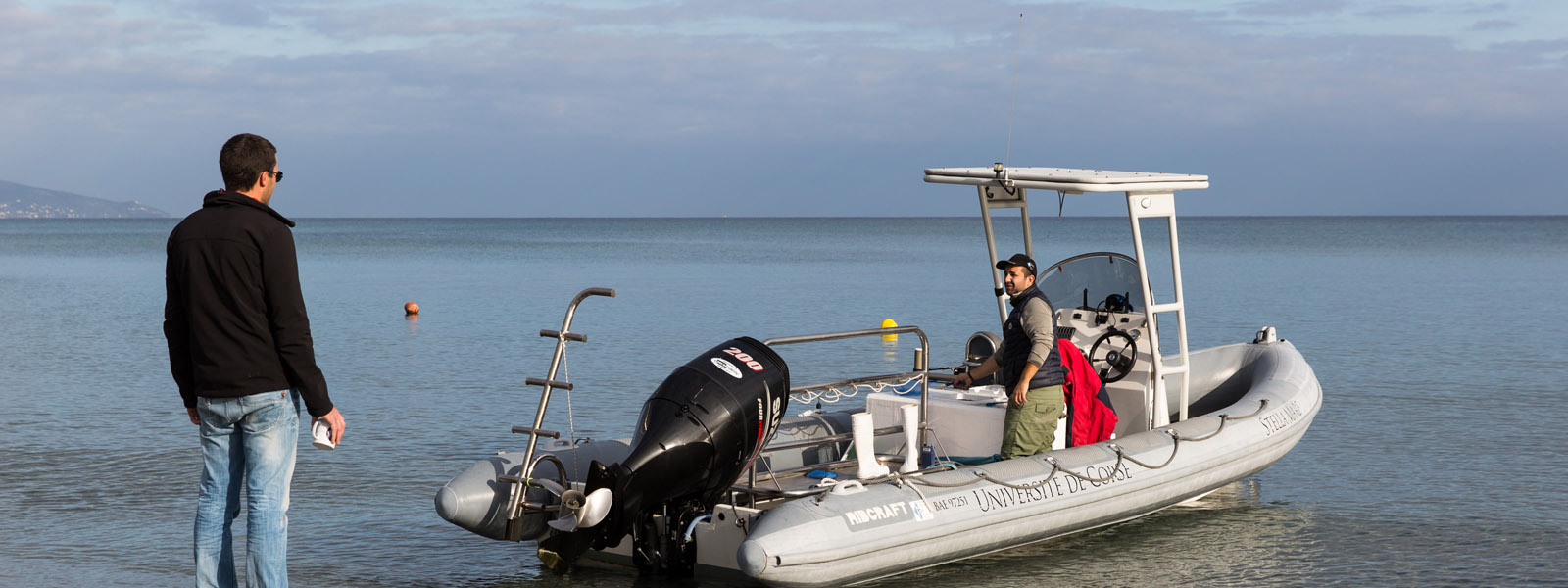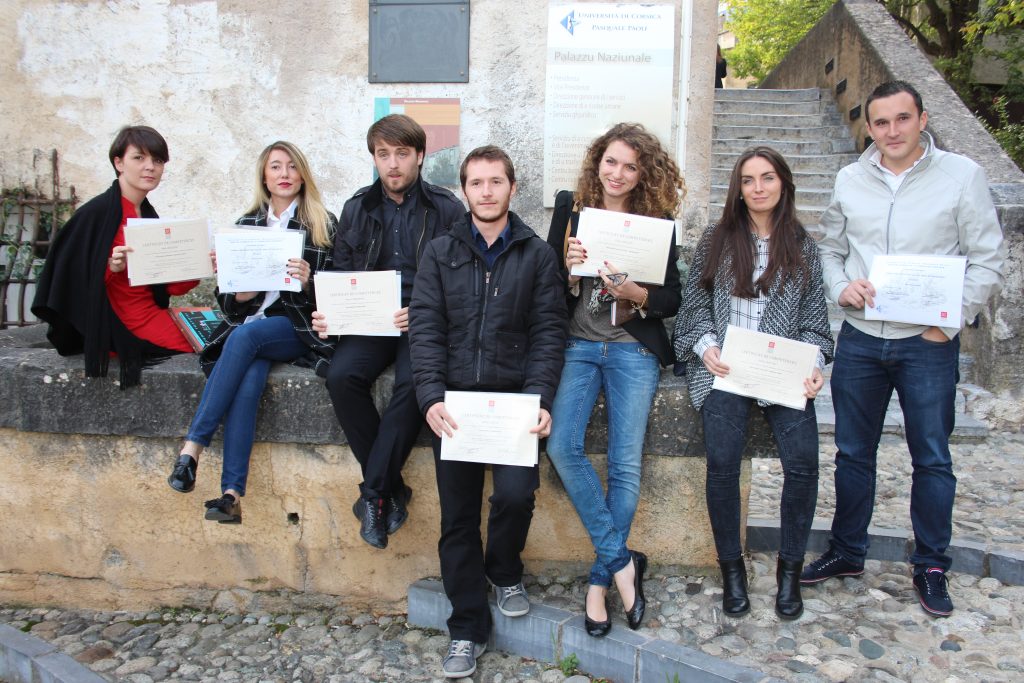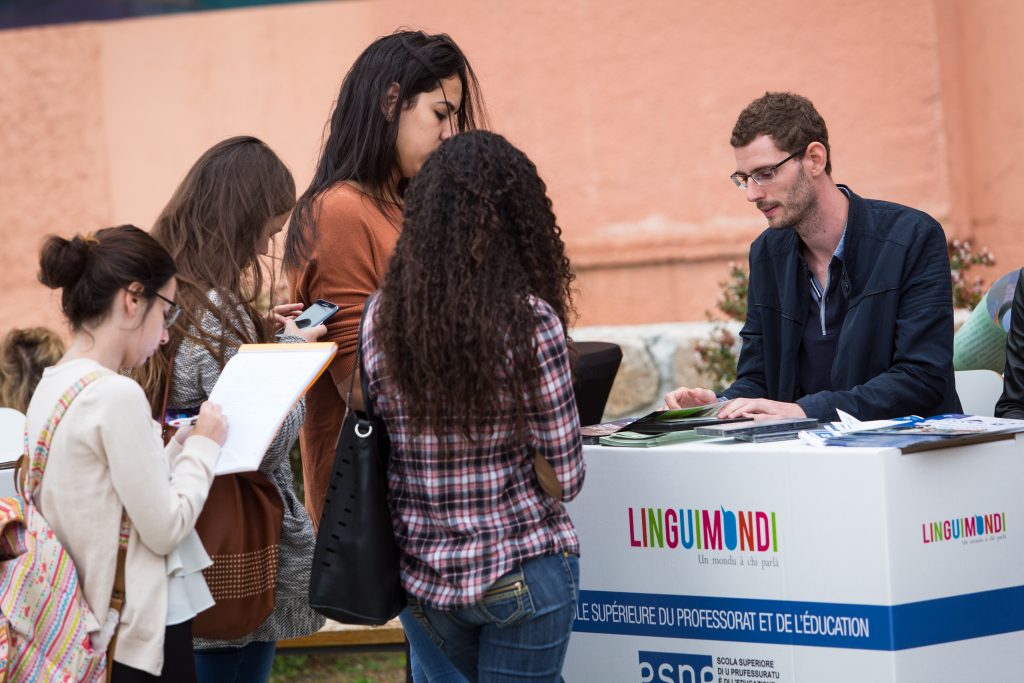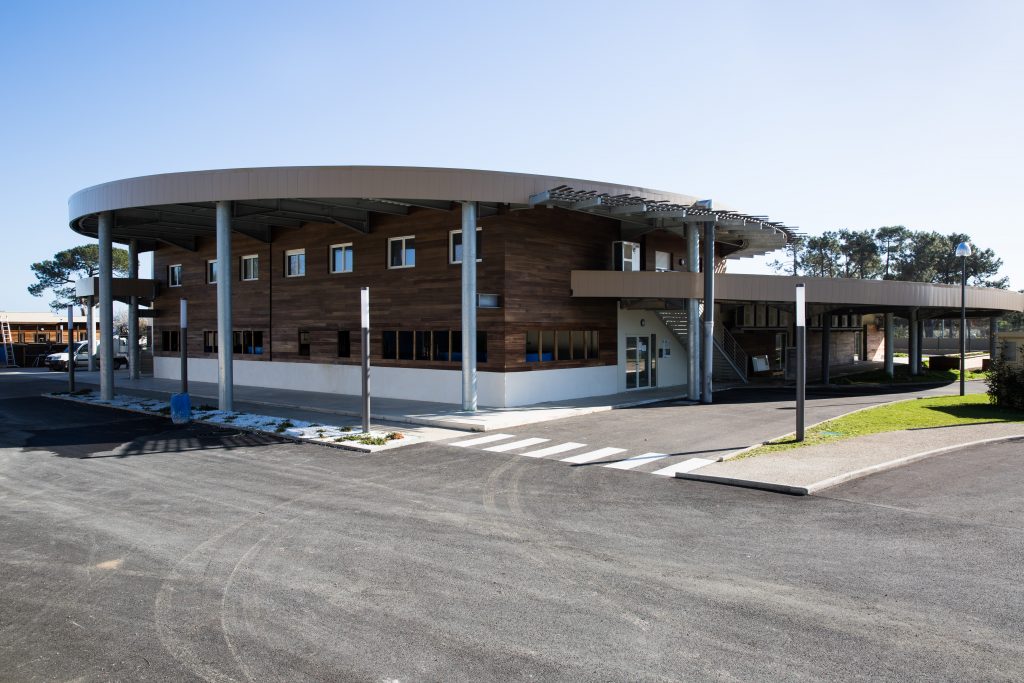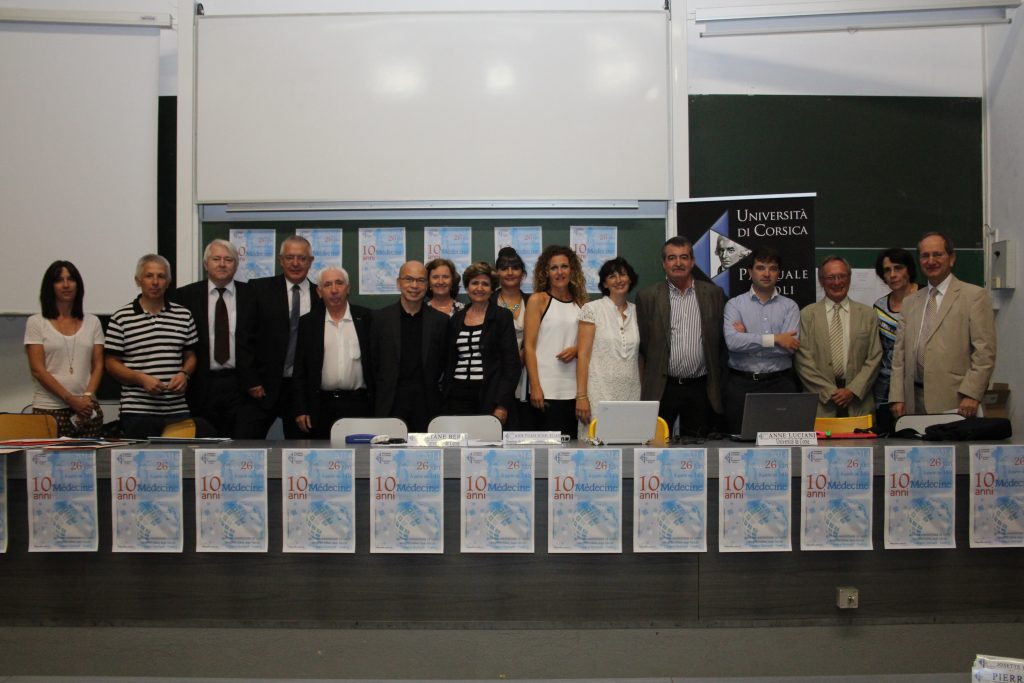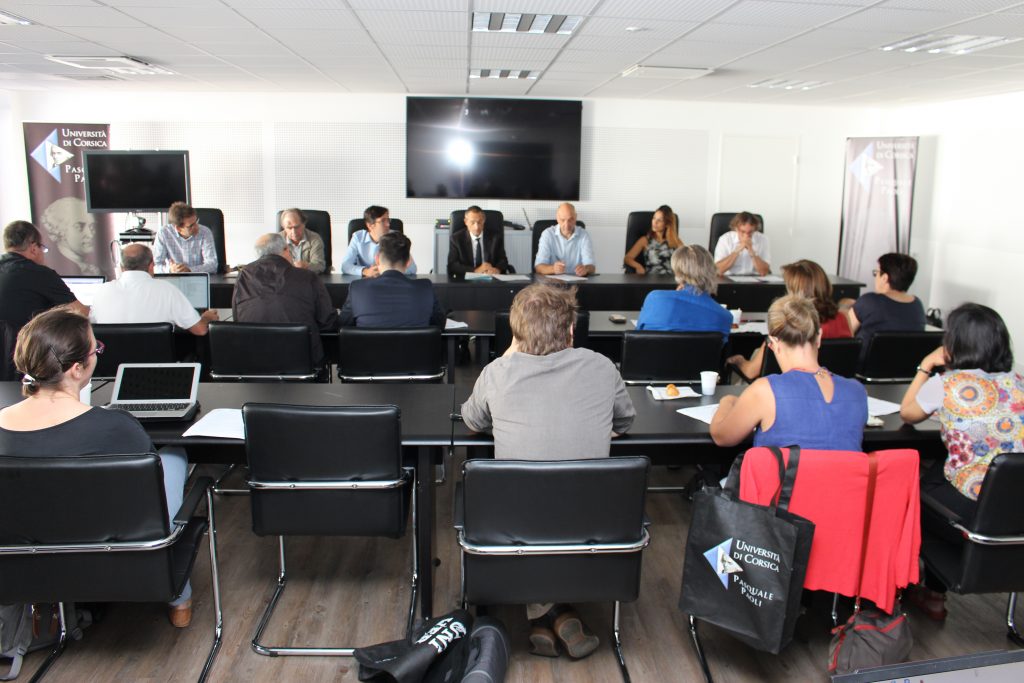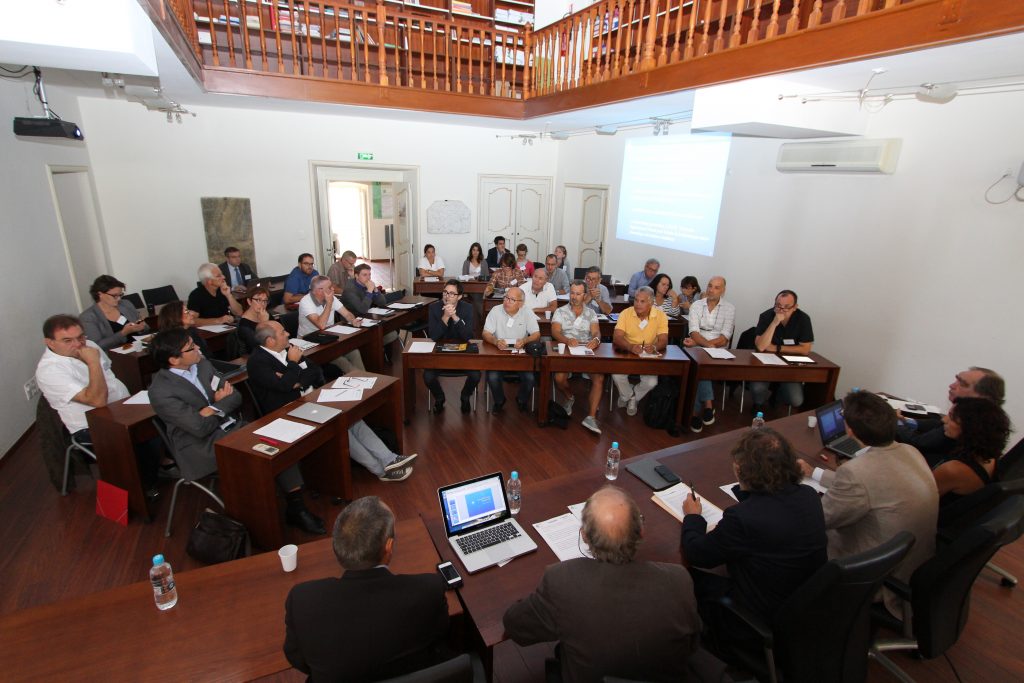Health.
In 2004, the University of Corsica inaugurated a first year medical program (PACES), allowing 200 students to prepare this extremely demanding quota exam under the best possible conditions. It is no longer necessary to leave Corsica, which entails the social and financial difficulties of relocation. The successful students go on to a second year of medicine, dentistry, midwifery, pharmacy or physical therapy in one of our partner universities (Paris Descartes, Paris Diderot, Aix-Marseille, or Nice Sophia Antipolis). In 2007, with the Corsican Regional Union of Private Practitioners (URML), the Nice and Marseille Universities, and with the cooperation of the CTC (Local Collective Corsican Government) and the General Government Councils of Northern and Southern Corsica, the University of Corsica developed compulsory and optional internships in pre doctoral medical specialization, tutored under Corsican supervision. The goal is to encourage new doctors to set up practice in Corsica, by focusing on interns in the University of Corsica’s PACES medical program. Between 2007 and 2016, approximately 150 interns have done their internship in Corsica since the program was set up.
In 2005, the University of Corsica and the National Institute for Medical Research (Inserm) added a Corsican branch to the Sentinels network (from the Pierre et Marie Curie University). Since then, the regional offices of the Sentinels network strengthen national studies, by associating local doctors more directly in their surveys. An example of their implication is the Grippenet study, which charts annual flu evolution, using direct online participation. Proportionally to its population, the resulting awareness in Corsica distinguishes the region as the most mobilized in France.
On a more general level, the University of Corsica collaborates regularly with actors in programs such as the League Against Cancer, to create campaigns and raise awareness, start exchange workshops, etc.

